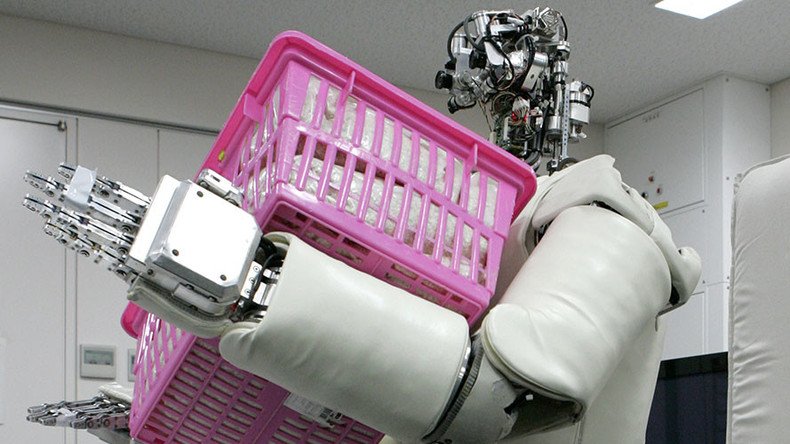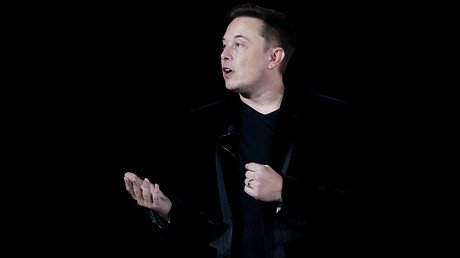Two robots in every kitchen: Elon Musk wants AI to handle domestic drudgery

A group sponsored by billionaire Elon Musk is pushing for intelligent robots to become as much of a modern home convenience as your washing machine.
In a Monday blog post, the leadership of artificial intelligence (AI) research company OpenAI said that the group wants to modify ‘off-the-shelf’ robots so they can perform common household tasks.
“We’re working to enable a physical robot (off-the-shelf; not manufactured by OpenAI) to perform basic housework,” the group said in a blog post authored by Research Director Ilya Sutskever, Chief Technology Officer Greg Brockman, Sam Altman and Elon Musk.
This futuristic target is second only to the primary goal laid out in the organization’s blog post, which is to develop AI that could learn to improve its ability over time.
Meeting such a goal would provide an underpinning for the perhaps more glamorous concept of robots that can clean your home, but the post goes onto say that domestic robots themselves would provide a solid foundation for approaching other problems in AI.
“There are existing techniques for specific tasks, but we believe that learning algorithms can eventually be made reliable enough to create a general-purpose robot. More generally, robotics is a good testbed for many challenges in AI,” the blog post reads.
After that, the nonprofit plans to build machines that can perform sophisticated actions by interpreting natural language commands.
“Today, there are promising algorithms for supervised language tasks such as question answering, syntactic parsing and machine translation but there aren’t any for more advanced linguistic goals, such as the ability to carry a conversation, the ability to fully understand a document, and the ability to follow complex instructions in natural language,” the post reads. “We expect to develop new learning algorithms and paradigms to tackle these problems.”
OpenAI’s stated mission is to research techniques in artificial intelligence and machine learning, but with a focus on making sure that such methods are safe for human beings.
The group has received $1 billion in funding from top figures in Silicon Valley, such as Musk himself and his PayPal cofounder Peter Thiel.
Musk had previously gone on the record to say that the he thinks that artificial intelligence could be potentially be the greatest threat to the existence to human life.
“You know those stories where there’s the guy with the pentagram, and the holy water, and he’s like — Yeah, he’s sure he can control the demon? Doesn’t work out,” Musk said at a symposium in October 2014.














